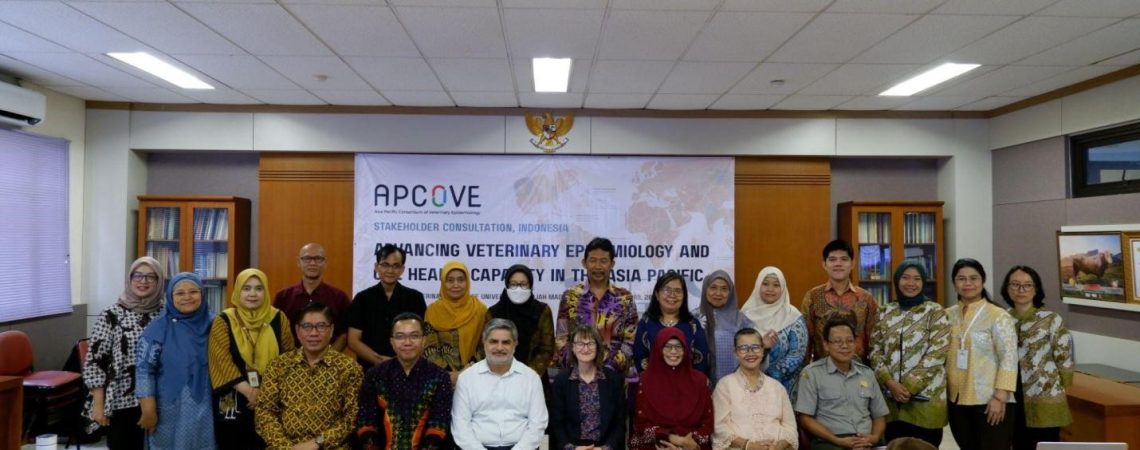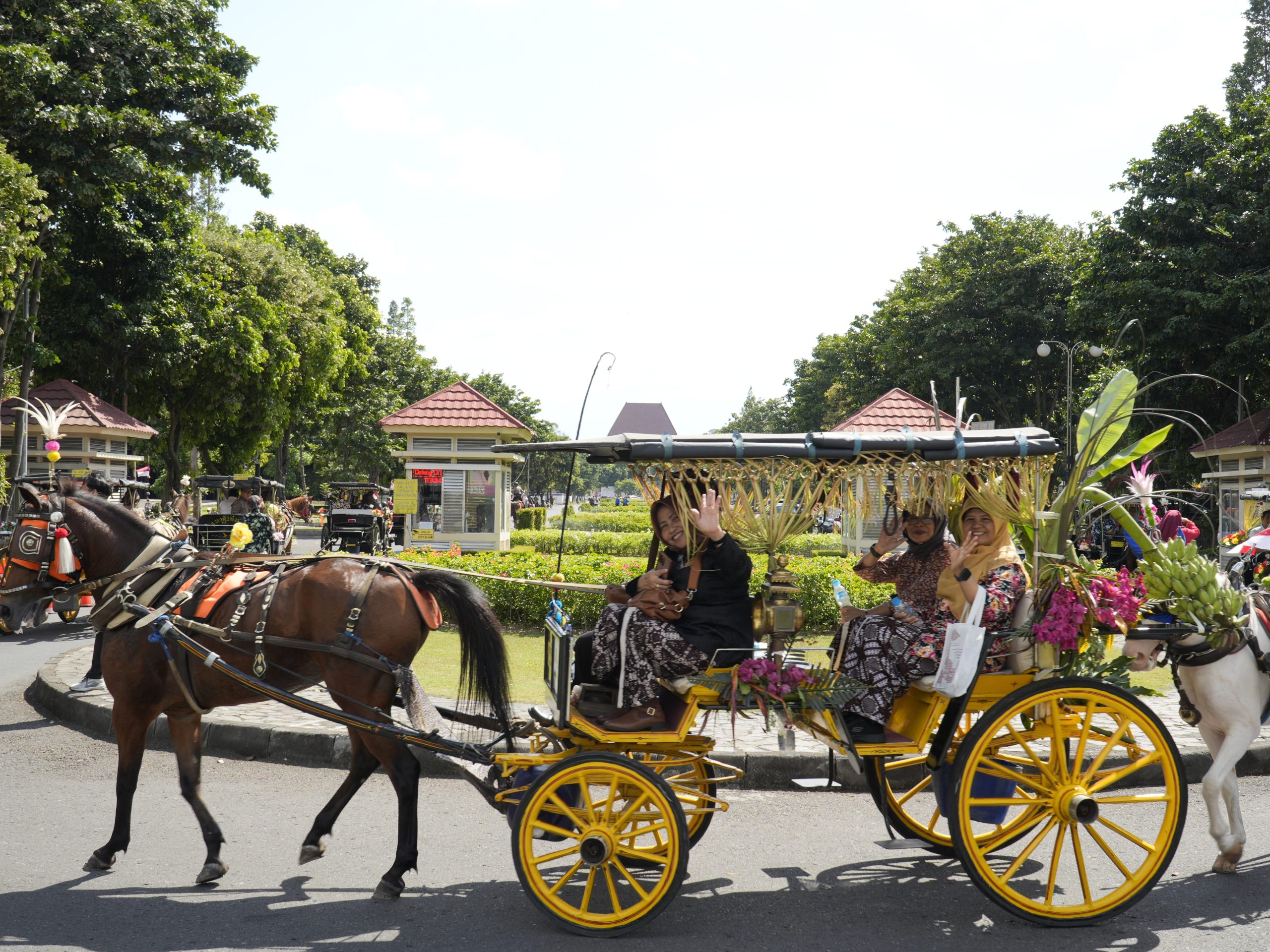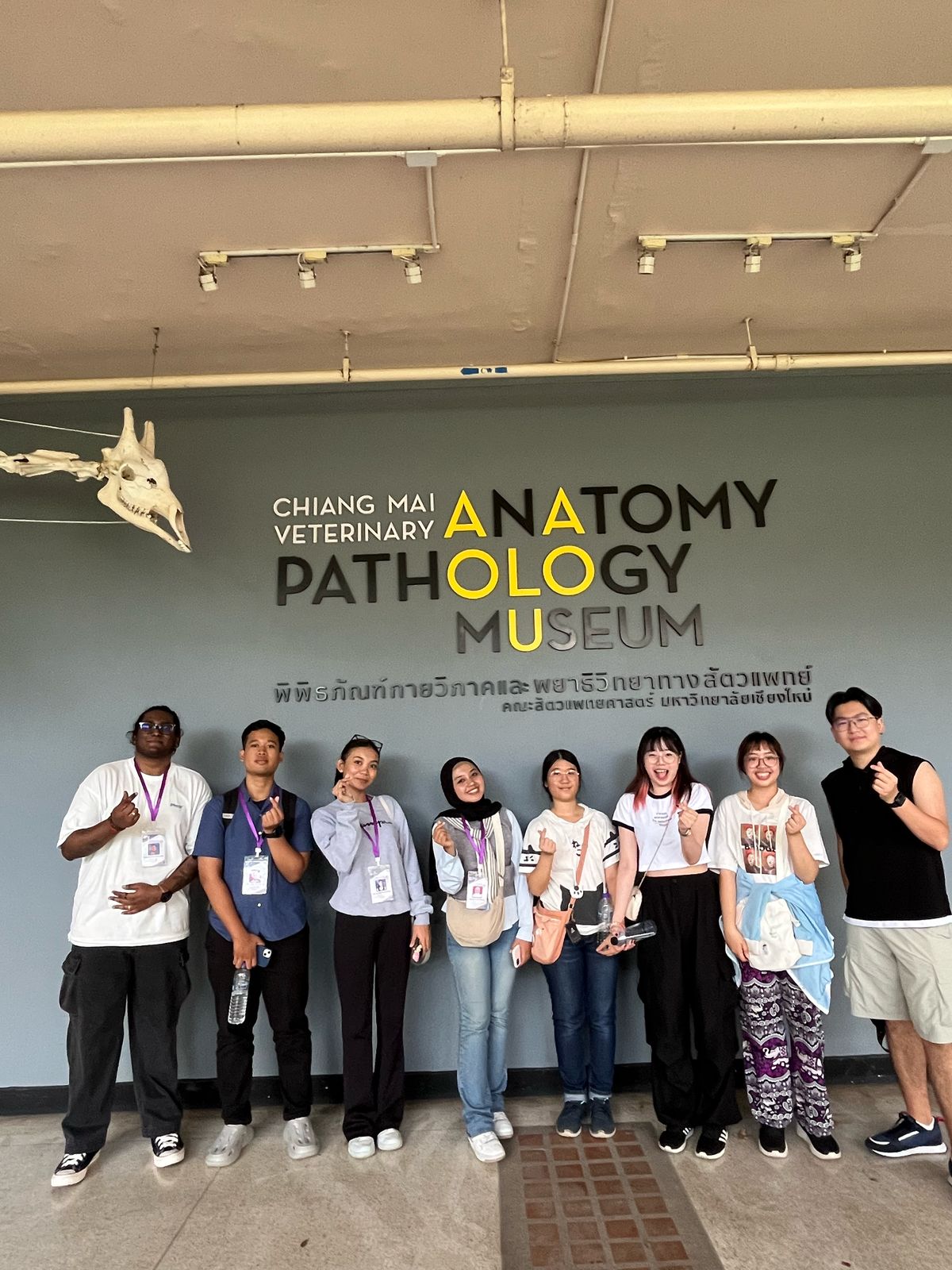Yogyakarta, April 24, 2025 — The Faculty of Veterinary Medicine (FKH), Universitas Gadjah Mada (UGM), is collaborating with the University of Sydney, Australia, as the lead institution in the Strengthening Veterinary Workforce in Asia-Pacific for Diseases Detection and Response (Vet-APIDDaR) project, funded by the Australian Department of Foreign Affairs and Trade (DFAT). This partnership commenced in 2020 and continued through 2024 (Phase 1), focusing on the development of an online epidemiology training platform for veterinarians across Asia-Pacific countries.
An inter-country forum initiated through this project led to the formation of the Asia Pacific Consortium of Veterinary Epidemiology (APCOVE), an international consortium comprising over 40 veterinary epidemiology experts from Australia, New Zealand, and various Asia-Pacific countries. Indonesia is represented by Dr. Drh. Widagdo Sri Nugroho, M.P., Drh. M.Th. Khridiana Putri, M.P., Ph.D. (both from FKH UGM), Drh. Martha Simanjutak, M.Sc., and Drh. Imas Yuyun, M.Sc. (Directorate General of Livestock and Animal Health, Ministry of Agriculture, Republic of Indonesia) (SDG 17: Partnerships for the Goals).
Phase 1 successfully produced a mid-level field epidemiology training module aimed at veterinarians at district, provincial, and national levels, and organized online training programs (APCOVE), with 30 participants from Indonesia among the alumni. This initiative now continues into Phase 2 (2024–2028), which encompasses four key activities: frontline epidemiology training, intermediate personnel development, One Health training, and training programs for lecturers and field epidemiology mentors.
To launch the second phase, a Stakeholder Consultation Meeting was held from April 22–24, 2025, at FKH UGM and the Directorate General of Livestock and Animal Health, Ministry of Agriculture, Indonesia. The meeting aimed to assess the needs of veterinary professionals in Indonesia, identify field epidemiology training priorities, and explore the integration of APCOVE training modules into undergraduate and postgraduate veterinary education curricula. The event also featured presentations from APCOVE alumni, who shared their experiences and contributions to animal disease detection and control (SDG 4: Quality Education; SDG 15: Life on Land).
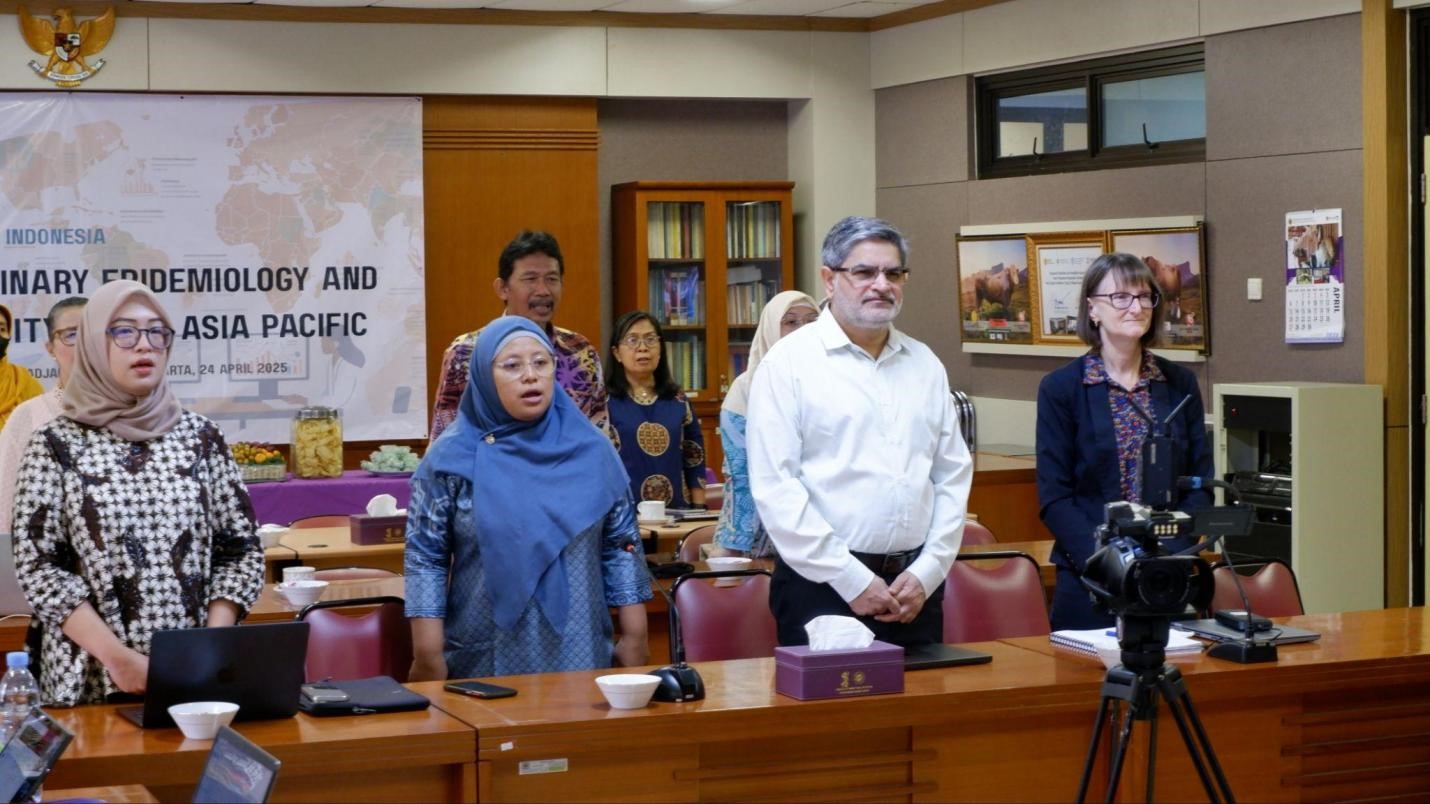
The program opened with remarks from the Dean of FKH UGM, delivered by the Vice Dean for Research, Community Service, Cooperation, and Alumni Affairs, Prof. Dr. Drh. Aris Haryanto, M.Si. Prof. Aris emphasized the critical importance of cross-country and inter-institutional collaboration in strengthening veterinary epidemiology capacity as a cornerstone of national health resilience. Discussions during the meeting highlighted opportunities for expanded collaboration, including joint curriculum development, student exchange programs, and international guest lectures, all of which contribute to achieving key performance indicators (KPIs) in international cooperation and graduate quality enhancement.
This initiative aligns with several Sustainable Development Goals (SDGs), notably SDG 3 (Good Health and Well-being), SDG 4 (Quality Education), and SDG 17 (Partnerships for the Goals).
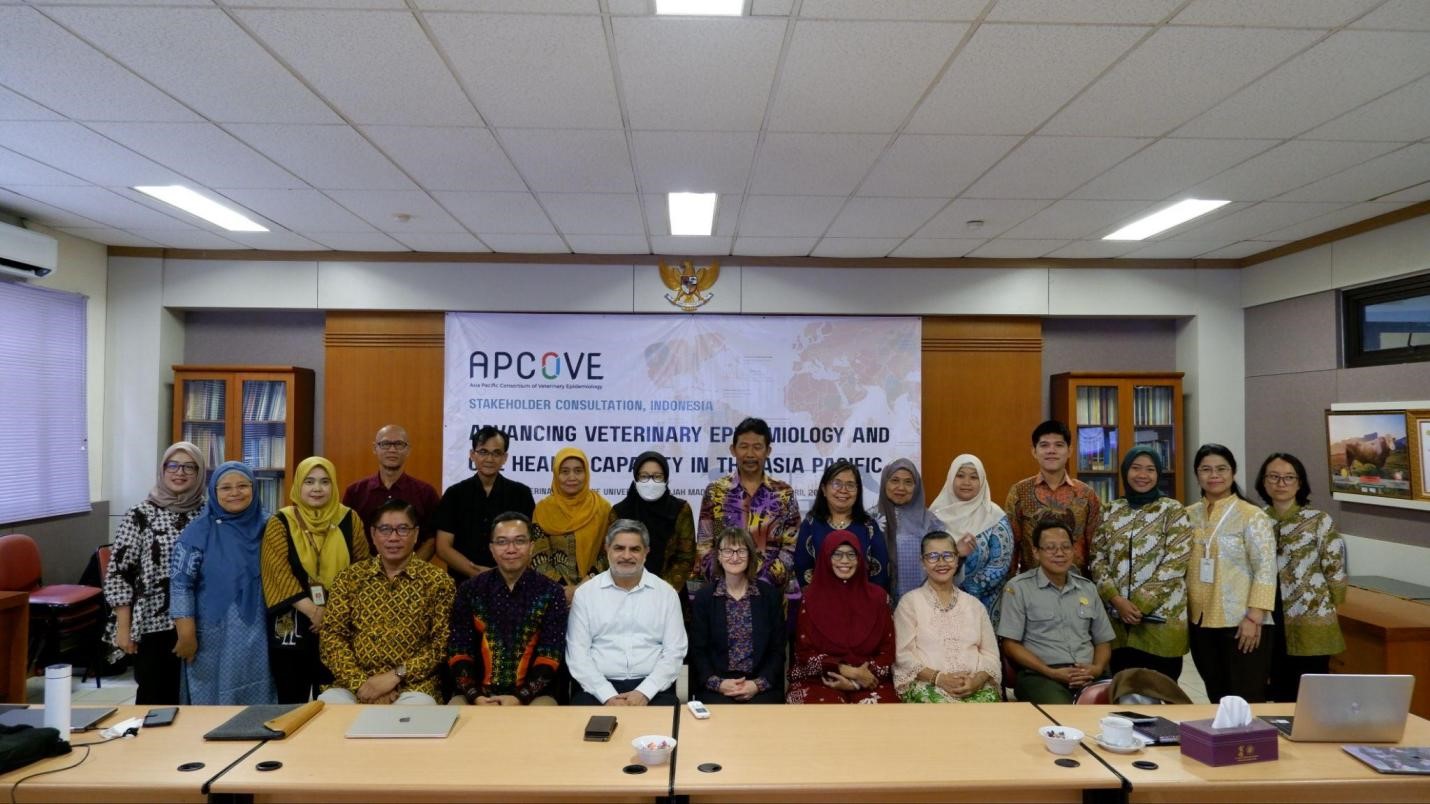
The series of events included presentations by Prof. Navneet Dhand and Prof. Jenny-Ann Toribio from the University of Sydney, who discussed the implementation of APCOVE activities in Indonesia. Drh. Dyah Ayu Widiasih, Ph.D., presented an overview of the veterinary epidemiology curriculum at FKH UGM. Testimonies were also shared by Drh. Rochmadiyanto, M.Sc., an APCOVE Batch 1 alumnus from the Wates Veterinary Center (BBVet). Additional academic contributions were provided by Dr. Vicka Octaria from FETP FK-KMK UGM and Drh. Kharisma Dewi, who presented UGM’s One Health activities (SDG 4: Quality Education).
The meeting also explored strategies for integrating APCOVE training modules into veterinary education programs. In addition, Prof. Jenny-Ann Toribio and Prof. Navneet Dhand held discussions with the Dean and faculty leadership of FKH UGM to further strengthen collaboration, particularly in the areas of veterinary education standardization, student exchanges, and visiting professor programs (GES) (SDG 4 : Quality Education, SDG 17: Partnerships for the Goals).

